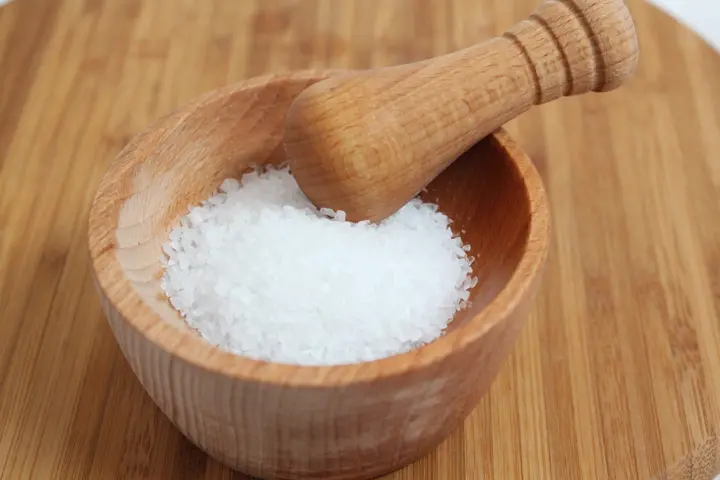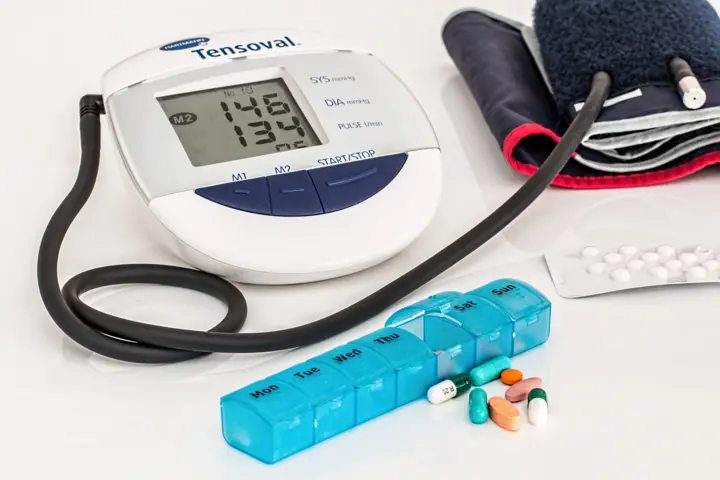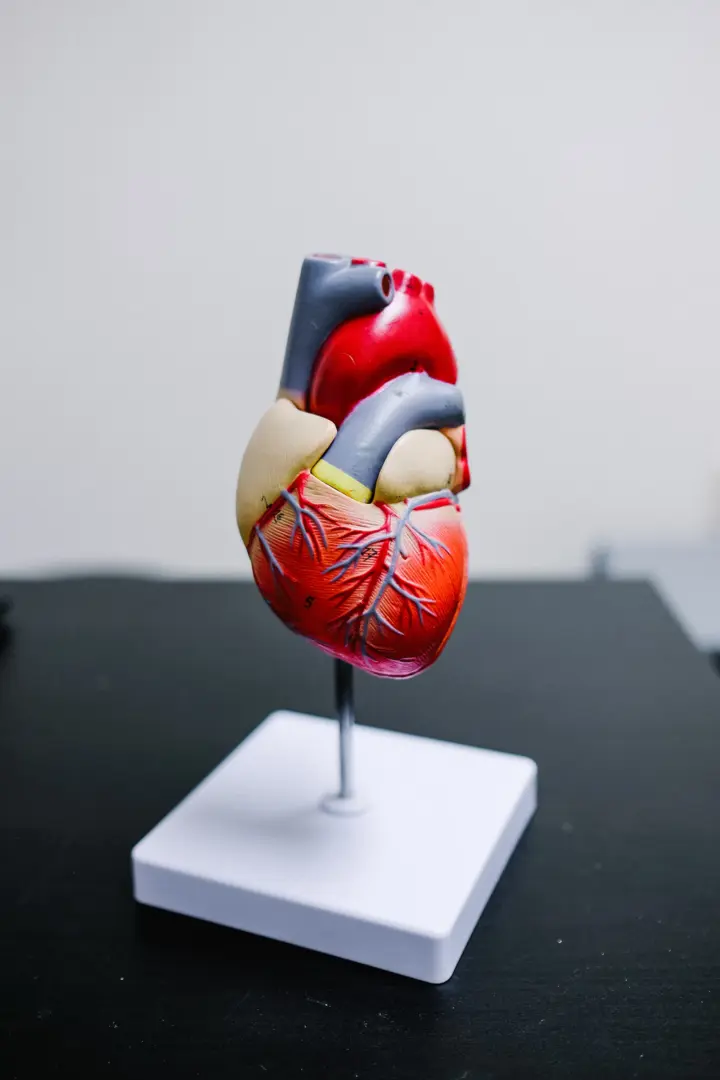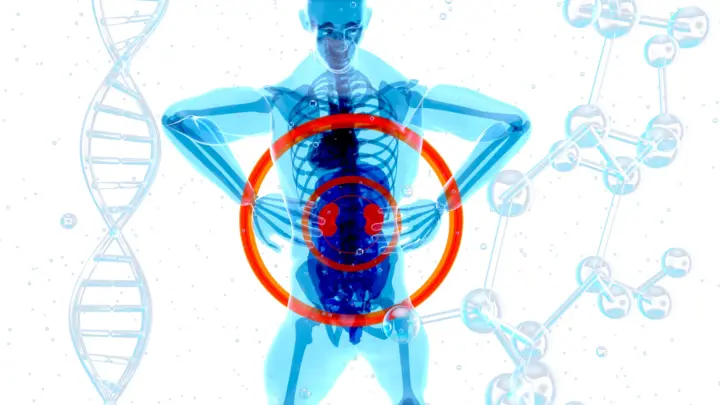What happens if you eat too much salt?

Obviously, salt has an important role in improving the taste of food and adding flavor. However, eating too much salt can negatively affect our health and cause serious health problems. In this article, we will look at the effects of eating too much salt on the body and show some subheadings that will help us better understand these effects.
Show key points
- Excessive salt intake is a major contributor to high blood pressure, which increases the risk of heart attacks, strokes, and damage to vital organs.
- Eating too much salt significantly raises the risk of cardiovascular diseases by weakening blood vessels and impairing normal heart function.
- High salt consumption puts strain on the kidneys, potentially leading to kidney stones, chronic kidney disease, and reduced renal function over time.
- ADVERTISEMENT
- Consuming large amounts of salt causes the body to retain water, which can result in noticeable bloating and swelling, especially in the limbs and face.
- There is growing evidence suggesting a possible link between excessive salt intake and mental health issues, including mood disorders like anxiety and depression.
- Many people consume more than the recommended daily salt limit, increasing their vulnerability to serious health conditions across various body systems.
- Reducing salt intake and adopting a balanced diet rich in fruits and vegetables is essential for maintaining long-term physical and mental well-being.
1. High blood pressure: How does eating too much salt affect blood pressure and what are the potential risks?

The problem of high blood pressure is one of the main effects of eating too much salt. High blood pressure is a serious condition that can lead to serious health complications such as heart disease and stroke. According to medical research, consuming excessive amounts of salt increases the risk of high blood pressure in individuals.
Recommend
Salt increases the amount of sodium in the body, and this leads to increased blood volume and increased pressure on the walls of blood vessels. When pressure on blood vessels becomes continuously high, it can damage blood vessels and obstruct proper blood flow. This means that the heart becomes restless to pump blood more strongly to bypass the increased resistance of blood vessels, which ultimately leads to high blood pressure.
Too much salt for too long can lead to serious health problems. It may increase the risk of heart disease, stroke and kidney disease. Chronically high blood pressure can cause damage to vital organs in the body such as the heart, kidneys, and brain. Moreover, high blood pressure can also increase the risk of arterial disease, atherosclerosis and heart failure.
Obviously, eating too much salt can have serious negative effects on our health. Therefore, we must be aware and reduce salt consumption in our daily diet. It is preferable to follow a diet rich in fruits and vegetables, low in salts, and avoid salty and processed foods. The goal should be to keep blood pressure in a normal range to avoid potential health risks.
2. Increase in the risk of heart disease: How does salt affect the increased risk of cardiovascular disease?

Cardiovascular disease is one of the most prominent health issues affecting our society today. Eating too much salt is one of the factors that contribute to the increased risk of these diseases. Knowing how salt affects cardiovascular health can help us take action for prevention and protection.
First, salt is one of the main sources of high blood pressure. When we eat too much salt, the concentration of sodium in the blood increases, causing an increase in the volume of fluid in the body and impairing the severity of the circulatory organs in controlling blood pressure. This rise in blood pressure weakens the blood vessels and increases the risk of heart disease such as heart attacks and strokes.
In addition, there are associations between excess salt intake, heart enlargement and high levels of bad cholesterol. Increased salt intake can lead to an increase in heart size, threatening normal heart function. Furthermore, high levels of sodium in the blood can lead to high levels of bad cholesterol, increasing the risk of atherosclerosis and the possibility of cavities forming with fat deposits.
It is important to understand that the increased risk of heart disease as a result of eating too much salt is not only a matter for the elderly. Children and young adults who eat excessive amounts of salt may be at the same risk. Therefore, it is important to raise awareness of the need to restrict salt consumption in all age groups and to encourage a healthy diet that contains moderate amounts of salt.
We must remember that maintaining heart health is not the responsibility of doctors alone, it is the responsibility of all of us. We have to adopt a healthy lifestyle that includes avoiding eating too much salt and choosing healthy foods that contain appropriate amounts of sodium. By raising awareness and taking action now, we can reduce your risk of cardiovascular disease and maintain heart health for years to come.
3. Negative effects on the kidneys: How does excess salt intake affect kidney function and increase the risk of kidney disease?

In a recent study published in the Journal of Medicine and Health Sciences, it was revealed that eating too much salt had strong negative effects on kidney function and an increased risk of kidney disease. Researchers have found that excessive salt consumption can cause high blood pressure, an important factor in deteriorating kidney health.
The function of the kidneys purifies waste products and toxins from the blood and helps regulate the balance of water and minerals in the body. However, when you eat too much salt, the kidneys are overstressed to get rid of excessive water and excess salt.
The natural consequence of such excess pressure is progressive damage to the renal tissue and deterioration of its functions. Doctors explain that increased pressure on the kidneys can lead to the formation of kidney stones and atherosclerosis that feed the kidneys, increasing the risk of chronic kidney disease.
According to experts, the recommended salt consumption should be less than 5 grams per day, which is equivalent to approximately 1 teaspoon. However, many people's salt consumption is twice that maximum, and this makes them vulnerable to risks related to kidney health.
Therefore, doctors recommend eating potassium-rich foods such as organic fruits, vegetables and fish, rather than eating processed salty foods. In addition, exercise regularly and monitor blood pressure regularly to maintain kidney health and reduce the risk of kidney disease.
Remember that consuming excess salt can be harmful to our vital organs such as the kidneys, so let's be aware and follow expert advice to keep your kidneys healthy and avoid health problems related to eating too much salt.
4. Increase in bloating and swelling: How does eating too much salt cause fluid buildup in the body and lead to bloating and swelling?

There are many ways in which eating too much salt causes fluid buildup, bloating and swelling. At first, eating too much salt increases the concentration of sodium in the body. When there is a high concentration of sodium in the blood, water is absorbed from the surrounding tissues and stored in cells. This additional storage of water leads to an increase in the volume of fluid in the body and therefore bloating and swelling appear.
The places most affected by the phenomenon of swelling and swelling are the lower extremities, such as the feet and ankles. Feet may appear visibly swollen and become heavy and extremely sensitive. The accumulation of fluid in the body can also cause puffiness in the face and hands. Bloating caused by eating too much salt can be accompanied by pain, gas and a sensation of heaviness in the body.
It should be remembered that these effects may vary from person to person, as some people can have a sensitive response to salt intake. They may have an immune system that responds strongly to increased sodium concentration or are more prone to fluid buildup.
In short, eating too much salt leads to an increase in the concentration of sodium in the body and fluid accumulation, leading to the appearance of puffiness and swelling in the limbs and face. Therefore, we must be aware and try to reduce salt consumption and rely on other spices to improve the taste of food. Although salt is important in flavor, health awareness and gradual improvement of our eating habits can keep us healthy and contribute to preventing the bloating and swelling associated with eating too much salt.
5. Effects on mental health: Does salt have an impact on mental health and mood? How does excessive salt intake affect the brain?

We all know that eating too much salt can lead to health problems such as high blood pressure and an increased risk of heart disease. But can salt also affect mental health and mood? Is there a link between excessive salt intake and conditions such as depression and anxiety? Let's dive into this topic and understand the effects of eating too much salt on your mental health and mood.
Scientific research shows a link between eating too much salt and its negative effects on the brain. When excessive salt intake occurs, the sodium content in the body increases abnormally. Excessive increases in sodium can affect the body's fluid balance, leading to high blood pressure. Eating too much salt can affect the concentration of blood vessels in the brain. This negative effect on blood vessels may lead to reduced blood and oxygen flow to the brain, affecting brain function and activity.
In addition to the physical effects on the brain, too much salt is thought to also affect mental health and mood. Some studies have shown a link between excessive salt intake and conditions such as depression and anxiety. However, more research is still needed to determine the exact relationship and possible causes of this correlation.
In addition to its impact on mental health, eating too much salt may also have a negative impact on mental illness. Some studies show a link between excessive salt intake and complications of the disease, such as salt poisoning. It is believed that increased salt intake may affect the chemical balance in the brain and increase the incidence of psychological problems.
Although there are many studies showing that eating too much salt can have negative effects on mental health, more research is needed to clearly confirm this relationship. Today, individuals should maintain moderate salt intake and practice a healthy lifestyle to maintain an overall healthy balance. If you are concerned about the effects of salt on your mental health, it is best to consult a specialist for advice and guidance.
In general, eating too much salt can have negative effects on physical and mental health. It is best to control salt intake and lead a healthy lifestyle to stay healthy. And don't forget "moderation is the key to everything.

When it comes to salt intake, wisdom lies in moderation. We have to remember that getting moderate amounts of salt is the best way to maintain good health. It may seem that eating too much salt doesn't cause immediate negative effects, but in the long run it can have a significant impact on our overall health. Therefore, we must be aware and follow expert advice to reduce salt consumption and maintain a healthy life and a healthy future.








